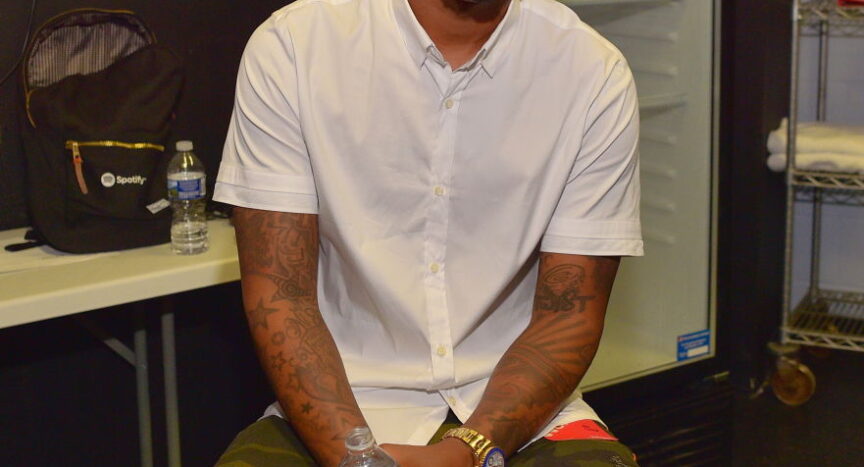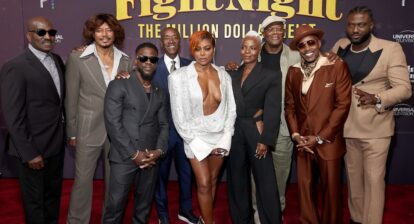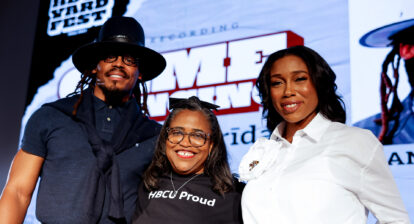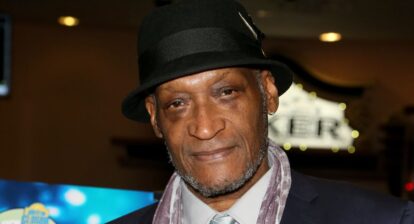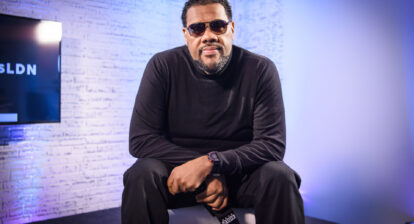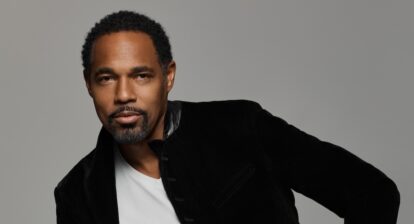Cortez Bryant, one of the music industry’s most respected executives and the force behind the rise of Lil Wayne and Drake, is back at Jackson State University (JSU)—not as a student, but as an educator. Known for his dynamic approach to nurturing artists, Bryant credits much of his success to the foundation he built at Jackson State, especially as a member of the iconic Sonic Boom of the South marching band. That experience, shaped by the scholarship that brought him to JSU, was transformative, immersing him in a world of ideas, connections, and leadership that would launch him from his New Orleans roots to the top ranks of the music industry.
The Sonic Boom of the South isn’t just a band; it’s an institution within HBCU culture. It’s renowned for electrifying performances, impeccable choreography, and a brass section that leaves audiences in awe. The band has showcased its talent alongside global superstars, including Beyoncé, Ciara, and most recently, Usher during the 2024 Super Bowl, solidifying its status as a beacon of HBCU pride and excellence. For Bryant, the band’s impact was profound, and he’s returned the favor by creating a $500,000 endowment to fund scholarships for future students, helping open doors as the program did for him.

Dr. Richard Little, director of bands and a Jackson State alum, shares Bryant’s dedication to shaping the next generation. Leading the Sonic Boom, he emphasized that his role goes beyond musicianship; it’s about mentorship. “It is nothing shorter than a blessing,” he reflected. “To come back and not only serve my alma mater but to guide students who remind me of myself when I was here—it’s a calling.” Little is committed to fostering well-rounded individuals, “I don’t take it lightly; it’s about ensuring these young people become reputable, successful members of the community.”
Now in his fourth year of teaching at Jackson State, Bryant brings a real-world edge to his classes, connecting students to industry insights and hands-on learning experiences that rarely reach beyond major entertainment hubs. With virtual guest appearances from stars like Drake and direct paths to internships, he’s opening unique opportunities for young talent. For Bryant, teaching is more than sharing knowledge; it’s about instilling the values and skills that propelled him from Sonic Boom’s percussion section to a premier role in music.

Jackson State’s Sonic Boom of the South and the Prancing J-Settes are now preparing to bring their storied legacy to the national stage at the 136th Tournament of Roses Parade in Pasadena, California. A celebrated New Year’s Day tradition since 1890, the parade will give HBCU culture a global spotlight. As they embark on “Thee Road to Roses,” Jackson State welcomes contributions to support their journey, ensuring that HBCU excellence shines at one of the world’s most-watched events.
EBONY caught up with Cortez Bryant on the eve of homecoming season to discuss his love of teaching and giving back, the Sonic Boom, and more.
EBONY: The career moves you’ve managed, and the executive side has been really exciting to witness. But you have always mentioned how much the Jackson State Band scholarship that you got to go to JSU is what really changed your life. How does it feel to be back on campus in your fourth-year as an educator?
Cortez Bryant: It’s definitely the highlight of my days. Before [Lil] Wayne asked me to manage, I was a mass communication major on my pathway to broadcast production. Jackson State’s journalism and mass communications department is centered around news. I was super pro-Black in my last couple of years and was looking at how the news was airing propaganda. During my last couple of years at Jackson State, I interned at Head Start. Head Start brought college kids into classrooms, teaching five and six-year-olds. I got so much joy from education and teaching. It’s a full-circle moment for me. [Teaching] was something that I knew God wanted me to do back then. So, it was a full circle moment, coming back and being in the classroom. It’s definitely the most rewarding thing, outside of my son, that’s happening in my life right now. Throughout my career, all of my decisions have been guided spiritually.
How have you been able to listen to that internal voice that says, ‘I need to also give back, I also need to be in this environment where I’m able to pour into these students,’ the same way your mentors poured into you when you were on campus?
I have a vast understanding of where I came from. We didn’t have much growing up in New Orleans [and now have] all the things that I’ve achieved. Never took anything for granted. I never dreamed of being [at this level as an executive]. It was that voice that told me,’ Go and help and protect your best friend,’ and took that leap of faith. I never desired to have all the clients I’ve worked with. I was literally just doing it just to protect my friend, you know? And after that, when Drake came, ‘Can you help me?’ It was about the help part. My proudest moments have been when an artist came to me at the very beginning with their dreams and goals that they went on to achieve, and I helped them attain that.
What is the energy of a Cortez Bryant classroom?
We’re a hybrid class. Sometimes I’m there in person. Sometimes, it’s virtual. My day job is still in the [music] business. That keeps me cool [laughs]. I prefer in-person, and I wish I could be in person every single time. Those in-person classes hit the hardest. I teach two classes: Introduction to Music Business and Careers in Music. [The latter] gives a glimpse into the jobs behind the scenes.
Outside of teaching the material – I’m still in the business and still working with artists. So, they get real-time examples of things. I’m able to call my industry friends, and when we’re talking about certain things, I call people that’s experts in all spaces, and they give tangible advice.
Can you give a specific example of someone you called recently?
One of my guys, Jamil Davis. He started as an assistant tour manager for me and kind of worked his way all the way up to, you know, me and CEO of Revels Group. He was talking about tour management.
Drake came to class one day. It was crazy because CJ Harris was Drake’s road manager, and we were talking about touring. He and Jamil were my early team for Drake. It was a Zoom class that day, and he was just on, and nobody noticed he was on. I didn’t know he was coming on, either! But once one of the students noticed, they lost their minds that day, man. Drake poured into them and gave them some great advice. He’s always been the same as far as pouring into young people and giving back. He didn’t have to do that, but he took that time out and gave those students a once-in-a-lifetime experience.
Have you interacted with any students that you may want to mentor or support beyond the classroom? Potentially working with or having them work for you?
Yes, absolutely. To enter this business, especially if you’re not in one of these major cities where all the careers and jobs are, it can be harder. So I know that as I’m teaching, and I’m also building bridges for internship possibilities. With my Jackson State students, I give them all the opportunities [that I have a connection to]. Everything I see, they get access to all that.
You’ve talked about how Dr. Liddell has been such an impactful person in your life. He awarded you with the initial scholarship to Jackson State. Do you keep in contact with him, and did you reach out to him at all before starting to teach?
Yeah, I talked to Doc. Me and Doc just shoot the shit about a lot of different things, like life stuff. Doc is the man. He’s so unique in his delivery of how he talks. Like, you know, that old guy, those old Southern folks that have these riddles and give you life lessons.
What makes the Sonic Boom so important to you?
The Sonic Boom is so special. It’s why I do all the things for the Boom that I do. When Wayne first called and asked me to be his manager, I didn’t have any idea about the music business at all—like, nothing. So, the only thing I pulled from were my life experiences and a lot of those experiences I got by being in the band program. Leadership. That was the first time I saw people from other states and from around the country. Being a manager, you have to be comfortable talking to folks to advance your artists. The Boom built the foundation, and how I run the company with the principles of my percussion section is literally the foundation of my entire business structure.
When I got my first set of money, I donated and created that $500,000 endowment fund to make sure other kids had scholarships. Every time someone reaches out to me if I have an opportunity—whether it was a Super Bowl – when my guy Jesse Collins called me to produce the Super Bowl—he was like, ‘Yo, do you know a marching band?’ I was like, ‘Of course, I know a marching band.’ I didn’t even know it was Usher at first. ‘Do you have a marching band?’ I was like, ‘Yes.’

